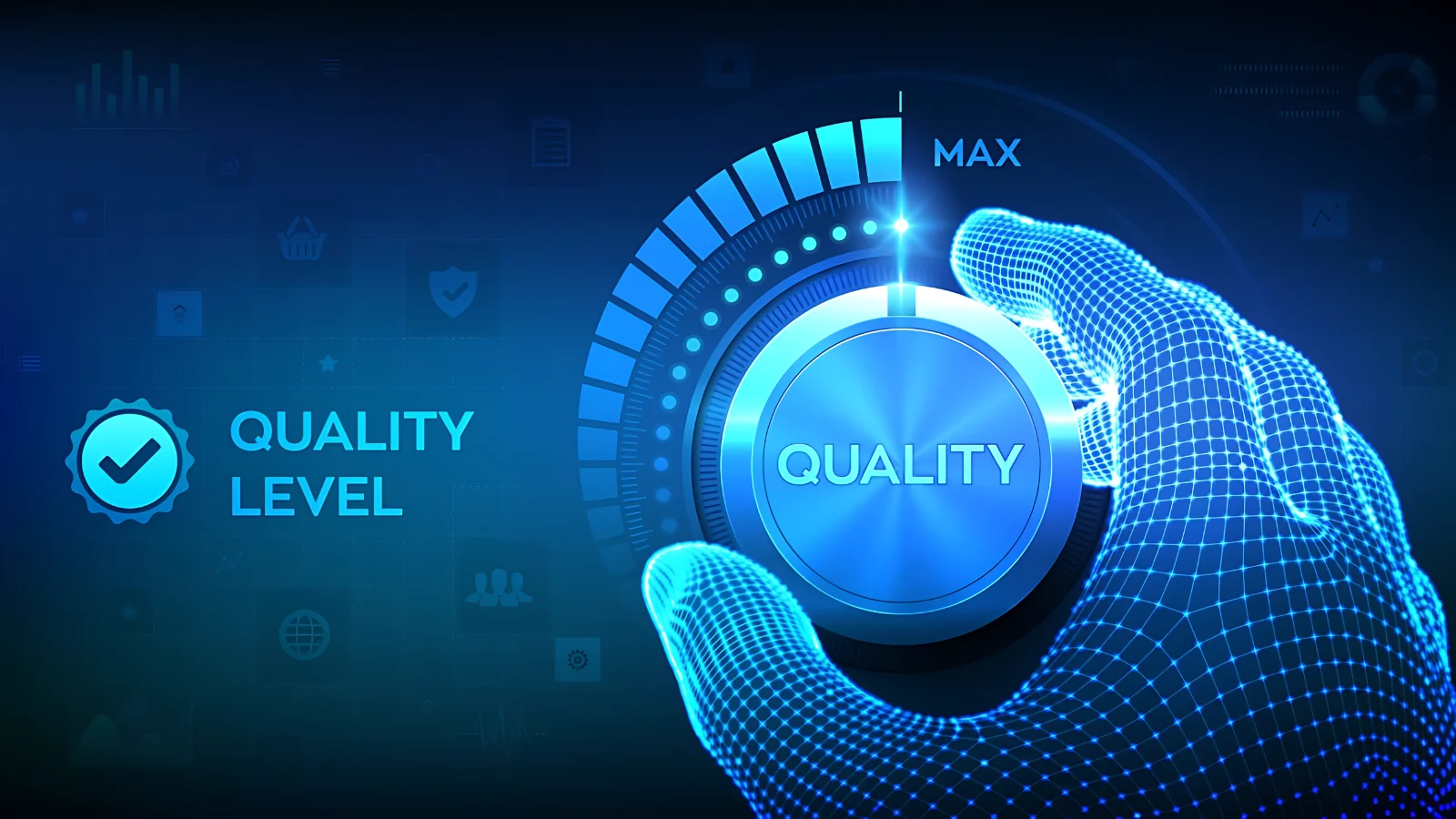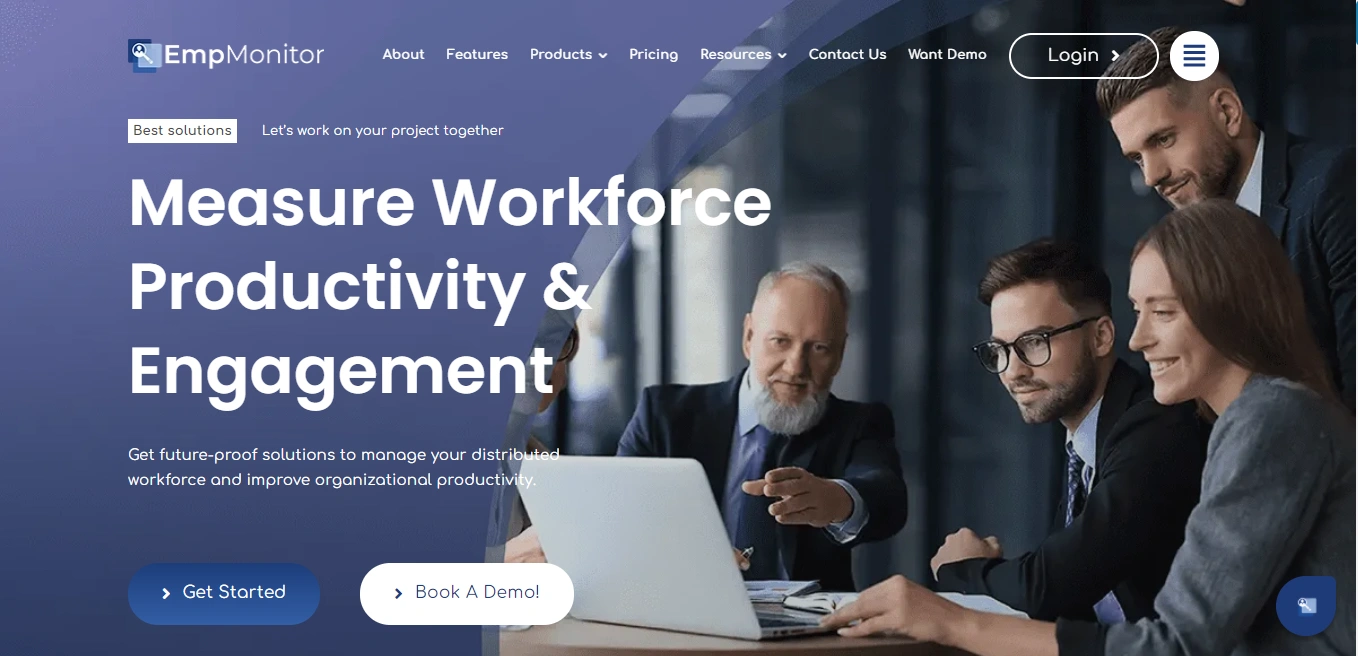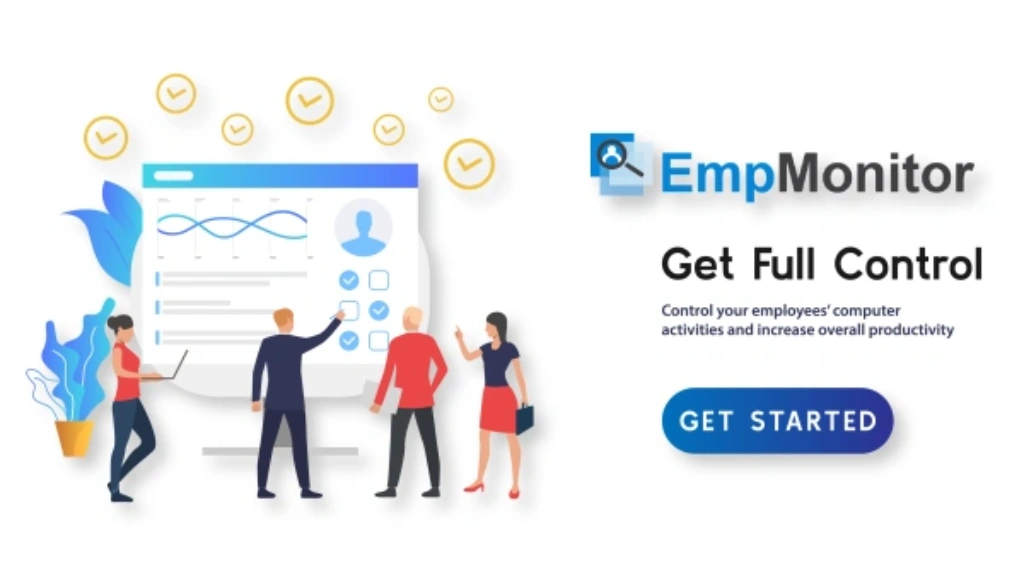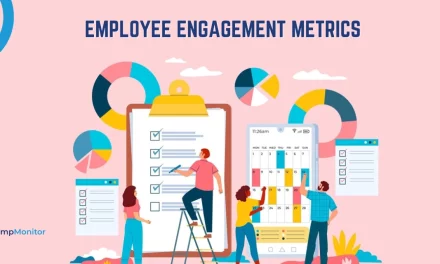The quality of work your team delivers determines your growth in the business landscape. It can either build your business or break it. As managers and employers, you understand that it’s not just about meeting deadlines. Instead, it is about delivering work that meets high standards and drives the organization forward. Quality work boosts client satisfaction, enhances our reputation, and fosters a culture of excellence.
However, the real challenge lies in fostering an environment where the organization prioritizes quality and seamlessly integrates into daily tasks. It involves cultivating the right environment, providing the necessary resources, and offering continuous feedback.
But how do you inspire your team to complete their work to excel? Or are you looking for that answer too? In any case, this blog is the perfect place to get answers to task-quality queries. In this blog, we’ll explore practical strategies to enhance quality work, ensuring our teams meet and exceed the standards that define our success.
In a hurry? Listen to the blog instead!
What Is Quality Of Work?
Quality work refers to work that meets or exceeds the expectations of clients or the company. Achieving quality work requires leveraging your management skills to perform tasks to the highest standard. While the definition of quality is subjective and varies by client or employer, it generally involves meeting all deadlines, fulfilling completion expectations, and presenting accurate information.
However, you can also define quality work by a few core elements, such as accuracy, efficiency, and effectiveness.
Accuracy ensures that the work is error-free and meets all specified requirements. Efficiency means completing tasks promptly while making optimal use of available resources. Effectiveness ensures that the quality of work achieves its intended goals and delivers desired outcomes.
Combining these elements provides a complete understanding of what constitutes quality work. It often includes thef following characteristics:
- Free of errors or grammatical mistakes.
- Meets the deliverable requirements set by the client or company.
- Conforms to project requests.
- Aligns with company and project objectives.
- Incorporates thorough research and due diligence.
- Complies with industry standards.
- Utilizes industry best practices.
- Integrates with business goals.
- It is relevant to the task.
- Considers specific, measurable, achievable, and time-based project goals.
Why Is Quality Work Important?
Quality work is crucial for several reasons:
Improves Productivity: Quality of work boosts employee productivity by reducing the number of edit requests or project changes, allowing employees to focus on other tasks. You can use comprehensive employee monitoring software like EmpMonitor to boost the quality of work by monitoring employee productivity patterns and identifying bottlenecks. This efficiency helps achieve goals and progress toward key performance indicators faster.
Enhances Workforce Performance: Employees who consistently produce quality work receive higher performance review ratings. It helps the business achieve its goals by maximizing available resources and aids employees in reaching their career objectives. Just as organizations rely on verified systems to ensure quality, students and professionals often turn to trusted resource to buy essays online when they need reliable, high-quality writing support that saves time and helps them maintain consistency and accuracy in their work.
Contributes to Company Morale: Consistent submission of quality work by employees improves overall company morale. When employees meet their expectations and produce high-quality work, then the company achieves its goals. Additionally, employees who complete their tasks effectively don’t need to rely on others to finish their portions, fostering positive workplace relationships.
Ensures Job Security: Delivering quality work enhances job security by maintaining customer satisfaction, which is vital for the company’s success. A company that meets its customers’ needs can continue operating and providing employment for its team members.
What Are The Methods To Evaluate Work Quality?
Evaluation and measurement of quality of work are essential to ensure high-standard task completion. Choose an appropriate approach for different methods and specific types of jobs.
Here are some used methods to measure task quality:
-
Output Method
This method involves assessing the quantity and quality of the output produced. It suits jobs with tangible outputs, such as manufacturing or design.
-
Time Method
This method measures the time taken to complete a task or produce an output. It is ideal for time-sensitive jobs like customer service or project management.
-
Error Method
This method tracks the number of errors made during a task. It is best for jobs requiring high accuracy, such as data entry or quality control.
-
Quality Assurance Method
This method involves checking work against a set of standards. It can be adapted to any type of work, making it suitable for all job types.
Whichever method you choose, ensure it is appropriate for your type of work and easy to use to achieve accurate results.
How To Measure Quality Of Work For Employees?
Measuring and evaluating the quality is crucial for ensuring that tasks are completed to a high standard, contributing to overall organizational success and employee satisfaction.
Here’s a detailed guide on how to effectively measure and improve task quality:
- Define Quality
Begin by clearly defining what “quality” means within your organization. This definition should be specific to each department’s roles and responsibilities. For example, quality for a sales team might involve metrics such as customer satisfaction ratings, sales numbers, and response times to customer inquiries. Each department should have tailored Key Performance Indicators (KPIs) that reflect their unique objectives.
- Choose a Method to Ensure Quality
Selecting the appropriate method to measure the quality of work is crucial. Common methods include:
Accuracy: This involves counting errors or discrepancies in tasks or products.
Efficiency: Evaluate how efficiently employees complete the task without compromising quality.
Functionality: Ensure that products or services meet their intended purpose and usability.
Compliance: Adhere to industry standards, safety regulations, and company policies.
Implement Quality Assurance Processes
Establish systematic quality assurance processes for all types of work within your organization.
Assign dedicated individuals or teams responsible for monitoring and improving quality. Give them the necessary resources and tools to conduct thorough assessments regularly.
Track Quality Over Time
Maintain detailed records of quality assessments to track performance trends over time. Analyze historical data to identify recurring issues and areas for improvement. Use performance appraisals and feedback mechanisms to recognize achievements and address deficiencies effectively.
Review and Adjust Quality Metrics
Maintain your quality of work metrics in line with your organization’s goals and industry standards by reviewing and updating them. Adjust metrics as needed to reflect priorities, challenges, and market conditions.
Foster Communication on Quality
Promote quality culture by communicating clear quality standards and metrics throughout the organization. Regularly update employees on quality performance through reports, meetings, and training sessions. Encourage open feedback and participation in refining quality processes to improve work performance.
By following these steps, organizations can establish effective practices for measuring, evaluating, and enhancing employee performance. This approach ensures consistent, high-quality output and fosters a positive work environment where employees are motivated to contribute to organizational success.
5+ Types With Examples
Below are the quality of work examples that you should check on:
Accuracy
Employers assess this task quality to gauge the precision with which you complete assigned tasks. Supervisors value error-free work, indicating meticulous attention to detail.
Example: Sarah’s role involves compiling quarterly financial reports. She meticulously reviews each figure and calculation, cross-referencing data to ensure accuracy within a 1% margin, which is essential for guiding strategic business decisions.
Her attention to detail and precision in reporting have earned her accolades from senior management, highlighting her ability to deliver reliable and error-free outputs consistently.
Work Completion
Your manager may evaluate your task quality by examining the completion of your tasks. It includes assessing the quality of work, determining the consistency and thoroughness of your finished work, determining if your assignments need additional revisions, and reviewing the total work volume you have completed.
Let’s consider: As a project manager, Alex efficiently oversees multiple projects, ensuring timely completion and exceptional quality. His thoroughness exceeds client expectations, earning high praise.
Alex consistently finishes projects ahead of schedule, delivering comprehensive, high-quality work that meets client specifications and demonstrates exceptional efficiency, thoroughness, and reliability.
Effective Communication
Effective communication enhances workplace productivity and efficiency. Employers may evaluate your ability to communicate effectively with team members, supervisors, and others. It includes assessing your written and verbal communication skills, as well as your listening abilities. Your manager might also review how you share information with others.
As an example let’s consider Emily. Emily is a project manager. She updates her team in meetings, promptly answers emails, listens to feedback, integrates suggestions, and encourages open dialogue. This effective communication fosters a collaborative environment, directly enhancing the quality of work by ensuring everyone is informed, aligned, and motivated to contribute their best efforts.
Attendance
When assessing your quality, your manager may examine your attendance record, checking how many days you were absent throughout the year. Employers use this information to gauge your commitment to the job. Employers often rely on tools like EmpMonitor, a comprehensive workforce management software, to monitor key employee metrics such as attendance, punctuality, and time spent on tasks.
Joe has maintained an exemplary attendance record. It includes overtime volunteer shifts and only two days away from work due to illness, which speaks volumes about his dedication and reliability. Such dedication ensures he fulfills responsibilities promptly, directly enhancing the quality of work and team productivity, as recognized and praised by his manager.
Safety
In specific roles, safety is crucial for minimizing workplace accidents. Managers assess your comprehension and application of safety policies and regulations to daily tasks.
Steve consistently wears his hard hat and promotes safety among his team. Steve adheres to safety protocols and enhances overall job performance.
His actions minimize risks and contribute to a safer work environment, demonstrating a high standard of project quality that goes beyond individual tasks to ensure the well-being of everyone on site. Therefore, Steve’s attention to safety directly enhances the quality of work by mitigating potential hazards and fostering a culture of safety among his peers.
Decision Making
Decision-making is a critical aspect of performance evaluation. It showcases your ability to make independent, informed choices related to your role. A manager evaluates your ability to independently make decisions, collaborate for input, and apply analytical skills. Understanding the psychological profile that drives these choices can be helpful, and a dedicated personality test can reveal an employee’s inherent strengths and working preferences.
Hailey consistently demonstrates the ability to make informed and effective decisions. She shows confidence in her judgment and analytical skills by seeking input from only one or two colleagues when necessary.
This proactive approach ensures that decisions are made efficiently and align with organizational goals. Consequently, her manager recognizes and values this capability, attributing Hailey’s high score in decision-making to her capacity to take decisive action and achieve positive outcomes in her role. It enhances the quality of work by ensuring that decisions are thoughtful and timely and contribute positively to the team’s objectives.
Time Management
Efficient time management involves prioritizing tasks and completing crucial ones promptly. Employers assess scheduling habits and multitasking abilities to ensure task completion on time.
Andrew demonstrates exceptional time management skills, which are crucial for maintaining high-quality work. Handling multiple projects efficiently and meeting deadlines reflects his ability to prioritize tasks effectively. His self-sufficiency in rarely needing assistance further underscores his organizational competence, ensuring task completion with minimal oversight.
This reliability and productivity contribute significantly to the overall work, as Andrew’s disciplined approach allows him to deliver results that exceed expectations.
How Does Empmonitor Help In Improving The Quality Of Work?
EmpMonitor is a comprehensive workforce management tool designed to help businesses manage their workforce effectively. It helps organizations enhance productivity, ensure compliance, and maintain a secure work environment by providing insights into employee performance and behavior.
Here is how EmpMonitor helps in improving the quality of tasks with its features:
Monitors Productivity
EmpMonitor tracks how employees spend their time on computers. Employers can identify productivity bottlenecks with insights into which applications and websites employees use. This productivity tracker helps you understand where employees may have spent excessive time on non-work-related activities, allowing adjustments to improve focus on productive tasks.
Enhances Accountability
When employees know that their computer activities are monitored, it encourages them to stay focused on work tasks. It increases accountability and reduces distractions, leading to better quality of work output.
Prevents Unauthorized Activities
EmpMonitor can detect and prevent unauthorized activities such as accessing inappropriate websites, downloading unauthorized software, or engaging in other behaviors that could compromise the security or productivity of the workforce.
Performance Reviews Statistics
EmpMonitor offers objective metrics on productivity and time management, making performance reviews more insightful. Utilize the data gathered by EmpMonitor to provide constructive feedback and set realistic goals for your team.
EmpMonitor helps improve quality by promoting productivity, accountability, efficiency, and a conducive work environment. It enables employers to make data-driven decisions that optimize workflow and support workforce performance. Hence, it is an invaluable resource for businesses looking to optimize their workforce management strategies.
Read More
9 Powerful Ways To Improve Work Performance In 2024
Optimizing Tech To Boost Workplace Performance
07 Most Important Management Skills No One Talks About
Best Practices To Improve Quality Of Work
Here are some tips or best practices that will level up your game of task quality.
1. Start with Challenging Tasks
Start your workday or project by tackling challenging tasks first. It allows you to allocate adequate time and resources to handle them effectively. These tasks often require more mental effort or specialized skills, so addressing them helps you manage unexpected obstacles and ensures they receive the attention they deserve.
By prioritizing hard tasks at the outset, you build momentum and confidence, setting a positive tone for the rest of your work.
2. Maintain Focus and Minimize Distractions
Maintain focus throughout your work session, as it is crucial for delivering high-quality results. Concentration and attention to detail are essential components of quality of work. Minimizing distractions and interruptions allows you to create a conducive work environment where you can fully engage with your tasks.
Techniques such as time blocking, using productivity tools, or organizing your workspace can help you optimize focus and minimize disruptions, thereby enhancing the quality of your output.
3. Assess Your Strengths and Weaknesses
Self-awareness regarding your strengths and weaknesses is the solution to improve task planning and execution. You can confidently set goals and timelines for tasks that align well with your skills by understanding where your strengths lie.
Acknowledge your limitations for tasks that challenge you. It allows you to allocate extra time for learning or seeking assistance. Regularly assessing your performance and seeking feedback from colleagues or supervisors helps identify areas for growth and continuous quality of work improvement, ensuring that you deliver work of consistently high quality.
4. Emphasize Effective Communication
Effective communication with clients or team leaders is essential for understanding their expectations and delivering work that meets or exceeds expectations.
Clear communication involves actively listening, asking clarifying questions, and discussing project specifications to ensure alignment. Soliciting feedback throughout the project lifecycle enables you to make necessary adjustments and refine your work. It also demonstrates your commitment to quality and fosters positive relationships with stakeholders.
By integrating these strategies into your work habits, you can significantly enhance the quality of your output. Each tip emphasizes proactive planning, disciplined execution, and effective communication as fundamental pillars for achieving and maintaining high standards of work performance.
Wrapping Up
The measurement of quality of work is crucial for organizational success. It encompasses accuracy, efficiency, and adherence to standards beyond mere task completion.
Tools like EmpMonitor assist in tracking productivity, ensuring employees meet performance benchmarks. Recognize exemplary performance and boost morale. It will foster a culture of excellence. Provide constructive feedback that supports employee development and ensures ongoing improvement and alignment with company goals.
Prioritize and measure work quality. It cultivates an environment that enhances productivity, promotes innovation, and drives customer satisfaction. In today’s dynamic marketplace, this focus on quality ensures sustained competitiveness and organizational success.
FAQs
Q: What does total quality of work entail?
Total quality management (TQM) is a management philosophy focused on achieving long-term success through customer satisfaction. It involves all members of an organization collaborating to enhance processes, products, services, and organizational culture.
Q: What constitutes quality work, and how can it be demonstrated?
Here are several approaches to achieving quality work:
- Maintain high personal standards: Commit to performing tasks to the best of your ability.
- Go the extra mile: Demonstrate dedication by exceeding expectations.
- Acknowledge errors and implement corrective measures promptly.
- Collaborate effectively with your team.
- Maintain focus and adhere to your schedule.
Q: What is self-assessment of work quality?
When you consistently meet major deadlines with excellent outcomes. You prioritize tasks effectively, and focus on the most critical first. You regularly assess team and customer needs to plan your schedule accordingly, ensuring promptness and active engagement throughout work hours.
Q: What defines employee quality?
Outstanding employees continuously seek self-improvement and strive to enhance their contributions to the company. They actively listen, value feedback, and remain open to new ideas. They confidently ask questions and seek assistance when necessary.















